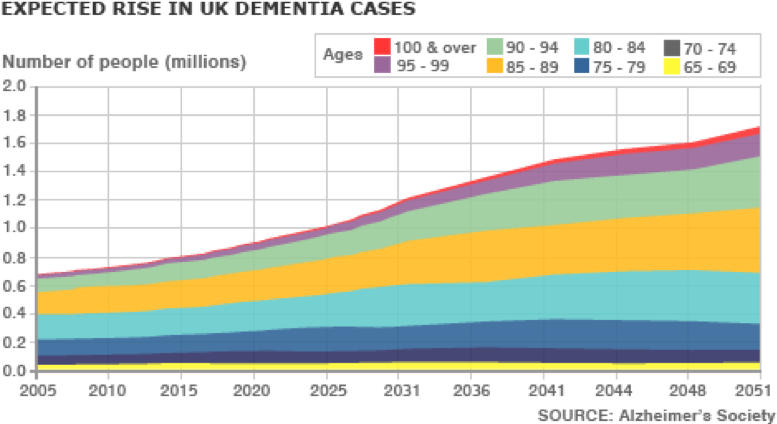Using the UK Alzheimer’s Society figures as an indicator reflective of the western world a disturbing continual exponential rise in dementia is expected. More specifically, a reported 700,000 plus have dementia in the UK, burdening the economy with a cost of more than 17 billion:
The estimation for 2051 is around 1.7 million; that’s means roughly 2.5 times more dementia cases in the next 40 years, possibly costing well over 60 billion. Then there’s the vast numbers of unpaid carers; close friends and family members currently affected or to be affected…1
So, there could never be a more important statement than the old adage
‘Prevention is the best form of cure.’
What are the preventions for keeping Alzheimer’s away?


